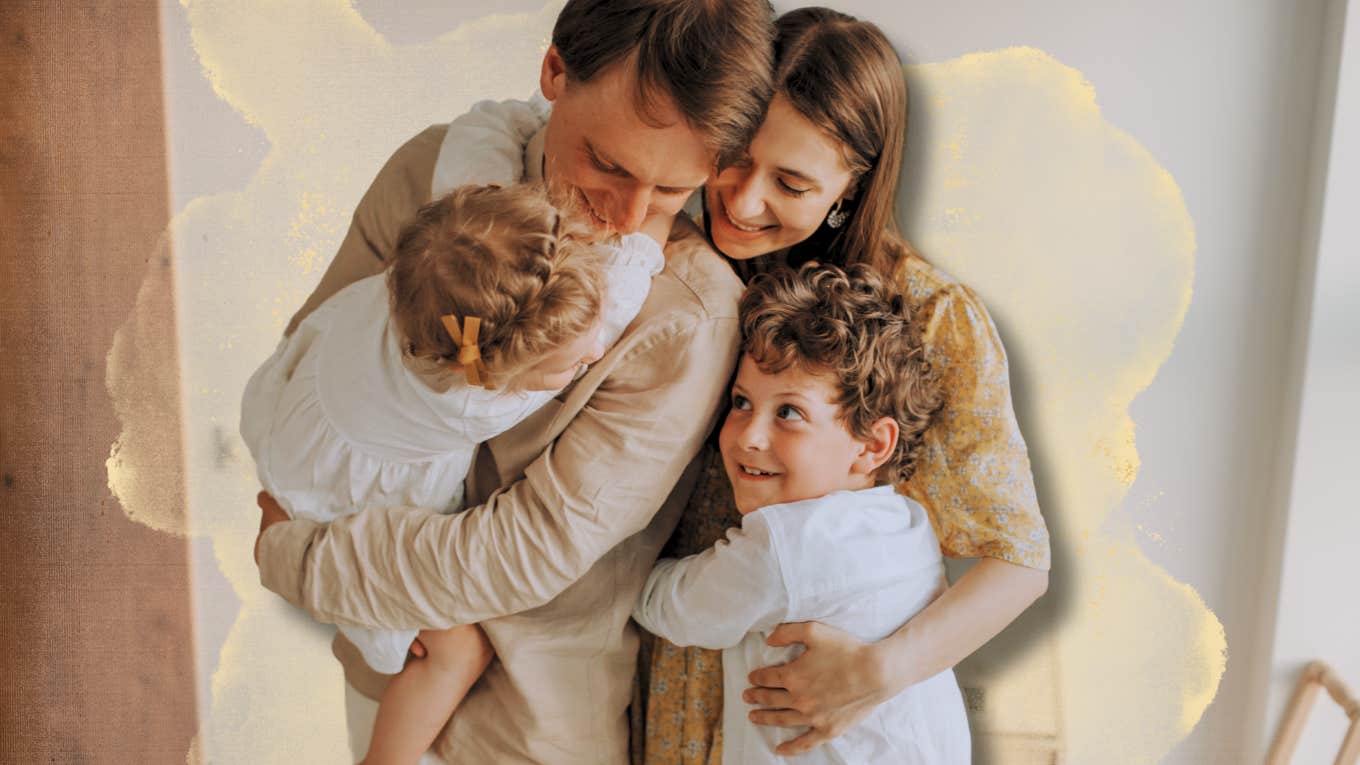If You Answer Yes To These 4 Questions, You Have A "Rigid Family System"
Are you the stormer, normer, reformer, or performer?

With wedding season and graduations right around the corner, chances are you will be spending time with your loved ones shortly. However, does the thought of a family get-together leave you feeling lukewarm or somewhat uneasy? Do you sometimes feel stuck or find you struggle with the same thing over and over again? Do you consciously know that you’re a competent adult, yet find that when you get together with the very people you are related to, you somehow become a disgruntled adolescent or teen (in one way or another)?
Simply recall some of your family events, gatherings, holidays, weddings, funerals, birthdays, and graduations — if the thought of these times makes you a little uncomfortable or shudder, you are not alone.
If you answer yes to any of these questions, you have a Rigid Family System:
1. Are you one who approaches family events wearing beer goggles or finds that you want to (or get) drunk?
2. Or are you more likely to know that if you toss out an idea — like where everyone should go for a fabulous dinner or drinks — you expect that your contribution will likely fall on deaf ears? Or worse, once you say it, someone else acts as if the idea was theirs to begin with. (No kidding, this happens.)
3. Do you feel compelled to share your successes, adventures, plans, and big wins or the successes of your children — if you have children — so others can feel excited right along with you?
4. Finally, do you feel a strong urge to plan activities and account for each day and evening when you and your family or extended family get together?
In a Rigid Family System, family members often find themselves scratching their heads because they feel compelled to do what they do when they are with members of their Family Of Origin (FOO), but face internal resistance when they do so. However, when they go along with the dictates of their family (role), they ultimately feel a sense of disappointment. It often feels like a no-win situation.
 Photo: BearFotos / Shutterstock
Photo: BearFotos / Shutterstock
Another way to spot a Rigid Family System is when you find yourself running into similar relationship conflicts again and again, no matter how much therapy or self-help you try. However, such conflicts are not limited to your family relationships and may extend to your relationships with friends, colleagues, co-workers, bosses, employees, significant others, children, and any others with whom you develop any kind of closeness.
In Rigid Family Systems, individuals take on roles within their family. Not just any role, but very specific roles.
The four general roles you can find across most families are the Stormer, Normer, Reformer, and Performer. These simple roles provide a lens through which to understand behaviors and motivation. Together they serve a very helpful purpose of keeping a family on its course moving forward.
The Performer is the member of the family who gets the family to move and perform as a unit. The Normer is the family member who can be counted on to go along with the Performer, especially as the Normer values consensus and establishing “a norm.” The Stormer is the member who draws attention to the weaknesses of the family and the Reformer is the family member whose job it is to buoy the family.
In families where people experience connection, family members find that they fluidly adapt to each of these roles as circumstances dictate. The thing is, individuals have the freedom to change, adapt, and grow. This freedom both humanizes and fortifies the individual, meaning the family generally serves the individual members of the family. However, if the family does not offer physical or emotional connection or safety to its members, the purpose of the family is flipped. In this case, the members of the family serve the family rather than being served by the family.
Another important thing to understand is the role the family leader — the one who rules the roost — plays.
The leader of any family sets the tone. Everyone knows that there is usually a head of the household, however, this person is not always the one who earns the most money. The real head of the household is the person whose emotional presence and behavioral influence have the greatest impact on the collective members of the family. The nature of how the leader leads has the greatest influence on the level of rigidity within a family and how the family members find themselves adopting and adapting to one another. I like to call this person the Former, because their energy and ethos form the family dynamics, for better or worse.
The more open-minded the head of the household is AKA the Former, the more freedom the family members have at their disposal to discern who they are individually, and what they think, value, appreciate, like, and dislike.
Conversely, in a family where the leader demands obedience to his or her plans, beliefs, agendas, and the like, the members of the family have very strict rules that members find themselves living. More often than not, these rules are utterly covert, mostly because family members have internalized who they are in the context of their family. This often starts at very early ages. In these families safety (physical and emotional) is not experienced as a quality family members can count on from their family. The more rigid the leadership, the more rigidity trickles down to the roles members of the family find themselves becoming. The rules of each role become more and more inflexible, too.
Next time when you find yourself feeling stuck in a relationship or in a circumstance that feels oddly familiar, you can ask yourself, “Is this me? The ‘me’ I am, today in my current life?” If the answer is no, you can count on the fact that you’ve slipped into a role you played. Simply understanding this will give you some wiggle room to make different choices.
You can also try to approach the situation from the perspective of one of the other roles. For instance, if you are normally a Performer, try to bring some personal vulnerability to the interaction, or if you’re readily a Stormer, try to see if you can help build consensus. Even when the change is a micro-change, it may be enough to begin to shift the stuckness of a well-worn pattern. Try to take it slowly, be gentle with yourself, and just know you can benefit from it by seeing your struggles in a new light.
Maria Comsudes is a Georgia-based writer, wellness coach, and contributor to YourTango. She has an MS in Professional Counseling and is trained in Alchemical Hypnotherapy, Naturopathy, and The DNA of the Healing process. She has worked with individuals and families for the past 15 years.

